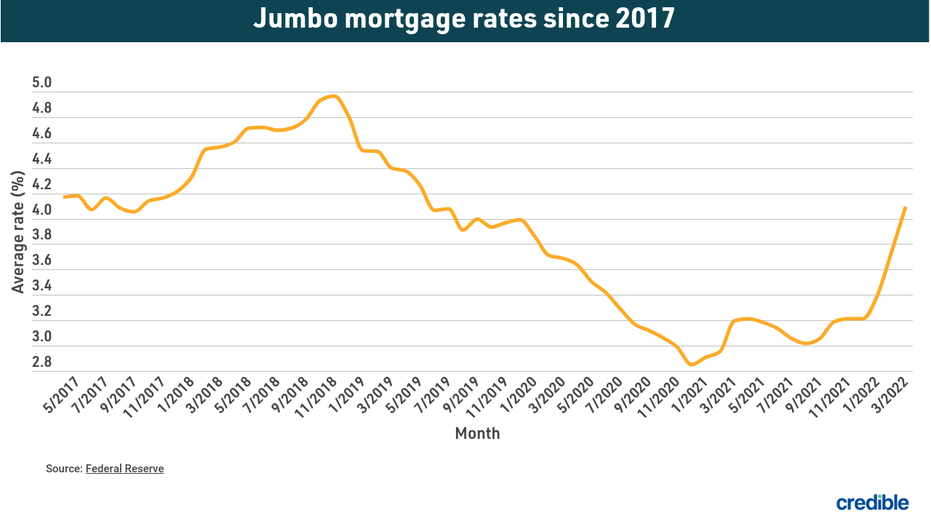Is a Jumbo Loan Right for You? Check out the Perks and Needs
Is a Jumbo Loan Right for You? Check out the Perks and Needs
Blog Article
Browsing the Jumbo Financing Landscape: Essential Insights for First-Time Homebuyers
Navigating the intricacies of jumbo loans presents a distinct collection of difficulties for novice buyers, especially in a developing genuine estate market. Recognizing the necessary eligibility demands and potential advantages, along with the disadvantages, is crucial for making notified decisions. Additionally, establishing a strong financial method can considerably boost your prospects.
Comprehending Jumbo Lendings

Since big lendings are not backed by government-sponsored entities, they bring various underwriting requirements and need more thorough economic paperwork. This distinction can result in higher rates of interest contrasted to standard financings, offered the boosted danger to lenders. Big car loans likewise use distinct benefits, such as the ability to fund higher-value residential properties and potentially extra flexible terms.
Newbie buyers ought to also be aware that securing a big loan often demands a larger down repayment, generally varying from 10% to 20%. Additionally, debtors are generally anticipated to show strong creditworthiness and a secure income to certify. Understanding these nuances can encourage novice buyers to make informed decisions when discovering jumbo loan choices in their pursuit of homeownership.
Eligibility Demands
Safeguarding a big car loan needs conference specific eligibility demands that differ dramatically from those of conventional finances. Unlike standard lendings, which are typically backed by government-sponsored entities, big loans are not guaranteed or assured, causing more stringent standards.
In addition, consumers have to show a robust financial account, which consists of a reduced debt-to-income (DTI) ratio, typically no greater than 43%. This ensures that customers can manage their monthly settlements together with other financial obligations.
Furthermore, the majority of loan providers require significant documents, including proof of revenue, possession statements, and tax obligation returns for the past 2 years. A significant down payment is likewise necessary; while traditional lendings might enable deposits as reduced as 3%, big finances frequently demand a minimum of 20%, depending on the loan and the loan provider amount.

Advantages of Jumbo Loans
For many first-time homebuyers, jumbo financings supply distinct advantages that can facilitate the journey toward homeownership. Among the key advantages is the capacity to fund residential properties that surpass the adapting financing restrictions established by government-sponsored entities. This adaptability allows purchasers to access a larger series of high-value residential or commercial properties in competitive actual estate markets.
Additionally, big financings typically come with eye-catching rates of interest that can be lower than those of conventional finances, especially for customers with strong credit report accounts. This can result in significant financial savings over the life of the lending, making homeownership much more affordable. Big fundings generally permit for higher finance amounts without the demand for private home loan insurance (PMI), which can additionally reduce regular monthly payments and general prices.

Prospective Disadvantages
Numerous prospective homebuyers may find that jumbo lendings come with significant drawbacks that call for careful consideration. Among the main problems is the stringent qualification criteria. Unlike conforming lendings, big financings commonly call for greater credit rating, typically exceeding 700, and substantial revenue paperwork, making them less accessible for some consumers.
Furthermore, jumbo loans usually include greater passion prices contrasted to traditional fundings, which can result in increased month-to-month repayments and overall loaning expenses. This costs may be particularly challenging for novice buyers that are already browsing the financial intricacies of buying a home.
One more notable disadvantage is the bigger deposit requirement. Lots of lenders anticipate a minimum deposit of 20% or more, which can posture a difficulty for customers with minimal cost savings. The lack of federal government support for jumbo fundings leads to much less favorable terms and conditions, boosting the you can check here threat for lenders and, as a result, the loaning expenses for homeowners.
Lastly, market changes can dramatically influence the resale value of high-end properties financed with jumbo fundings, including a component of economic unpredictability that novice homebuyers may find complicated.
Tips for First-Time Homebuyers
Browsing the intricacies of the homebuying procedure can be frustrating for newbie customers, specifically when taking into consideration big financings (jumbo loan). To streamline this journey, sticking to some vital approaches can make a substantial distinction
First, enlighten on your own on big fundings and their certain demands. Comprehend the different financing criteria, including credit report ratings, debt-to-income ratios, and deposit expectations. Commonly, a minimal credit report rating of 700 and a deposit of a minimum of 20% are essential for authorization.
Second, engage with a knowledgeable home mortgage expert. They can offer insights customized to your monetary situation and help you browse the complexities of the jumbo loan landscape.
Third, take into consideration pre-approval to enhance your acquiring position. A pre-approval letter signals to vendors that you are a severe purchaser, which can be helpful in open markets.
Last but not least, do not overlook the significance of budgeting. Consider all expenses connected with homeownership, consisting of building tax obligations, upkeep, and home owners' insurance. By following these suggestions, newbie purchasers can approach the jumbo funding procedure with higher confidence and clarity, improving their possibilities of successful homeownership.
Conclusion
In conclusion, navigating the big loan landscape requires a thorough understanding of eligibility standards, benefits, and possible drawbacks. Eventually, thorough prep work and education and learning relating to jumbo lendings can lead to even more informed decision-making in the homebuying process.
When navigating the complexities of the real estate market, understanding jumbo loans is important for first-time property buyers intending for properties that surpass traditional loan limitations. Big loans are non-conforming fundings that commonly exceed the adhering financing limit set by visit the site the Federal Real Estate Financing Firm (FHFA)In addition, jumbo fundings usually come with attractive interest rates that can be lower than those of standard financings, specifically my latest blog post for borrowers with strong credit score profiles. Big loans commonly allow for higher finance quantities without the requirement for private home loan insurance policy (PMI), which can further decrease overall prices and month-to-month repayments.
Unlike adapting finances, big finances normally need higher credit report scores, frequently exceeding 700, and significant revenue paperwork, making them less obtainable for some debtors.
Report this page